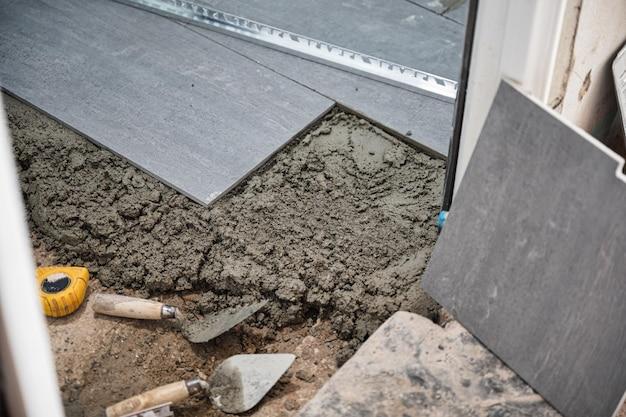Are you a US contractor considering working in Canada? Or maybe you’re a Canadian business owner seeking to hire a US contractor? With the growing trend of remote work and globalization, it’s becoming increasingly common for independent contractors to work across borders. However, working as a US contractor in Canada raises many questions about tax requirements, legal issues, and payment regulations.
In this blog post, we’ll answer essential questions like “Can a US contractor work in Canada?” and “Can a Canadian company pay a US contractor?” We’ll also explore the process of working as an independent contractor overseas, including whether a Canadian contractor can work in the US.
Moreover, we’ll dive into the nitty-gritty of paying foreign independent contractors in Canada. Have you ever wondered whether you issue a 1099 to a foreign contractor? What are the tax implications of paying a foreign independent contractor in Canada? These are just some of the questions we’ll be tackling in this comprehensive guide.
Whether you’re a US citizen working remotely for a Canadian company or a Canadian business owner looking to hire a US contractor, this article will provide you with the tools necessary to navigate the complexities of cross-border work. So, sit back, grab a cup of coffee, and let’s dive into the world of independent contracting across borders.
Working as a US Contractor in Canada
As a US contractor working in Canada, you may find yourself navigating different tax laws, work permits, and cultural differences. Here are some key things you need to know before starting your Canadian work adventure.
The Legal Stuff
First things first, you need to make sure you have the proper paperwork to work in Canada. Depending on the type of work you’ll be doing and the length of your stay, you may need to apply for a work permit or a visitor visa. It’s important to research this ahead of time and reach out to the Canadian government offices to ensure you have the right documentation in place.
Taxes
Even though you may be earning income in Canada, you still need to pay taxes in the US. The good news is that there are treaties in place between the US and Canada to prevent double taxation. It’s a good idea to hire a tax professional familiar with both US and Canadian tax laws to help you navigate this area.
Cost of Living
While Canada is certainly a beautiful country, it may be more expensive to live there than you’re used to. Make sure you research the cost of living in the area you’ll be working in and budget accordingly. It’s also wise to set up a Canadian bank account to avoid currency exchange fees and make it easier to pay bills.
Cultural Differences
Canada may be right next door to the US, but there are still some cultural differences between the two countries. Canadians tend to be more reserved than Americans, and they have their own slang and idioms. It’s also important to be familiar with Canadian workplace culture so that you can build strong relationships with your coworkers.
Working as a US contractor in Canada can be an exciting adventure, but it’s important to do your homework ahead of time to ensure a smooth transition. With the proper paperwork, tax preparation, budgeting, and cultural knowledge, you’ll be well on your way to a successful work stint in the Great White North!
Can a US Contractor Work in Canada
As a US contractor, expanding your business into the Canadian market is a great way to grow and diversify your income streams. But, before you start packing your bags, you may be wondering whether it is possible to work in Canada. The quick answer is yes, but with some caveats.
Work Permits
To work as a US contractor in Canada, you will need a work permit. The type of work permit you need depends on the duration and purpose of your work. For instance, if you are providing services to a Canadian company for a short period, you may need to apply for a visitor record or a work permit under the North American Free Trade Agreement (NAFTA) if you are a citizen of the USA or Mexico.
Tax Obligations
As a US contractor working in Canada, you will be subject to Canadian taxes and obligations. Depending on the length of your stay, you may be required to file a Canadian income tax return and pay Canadian taxes. However, you can avoid double taxation by claiming foreign tax credits on your US tax return.
Legal Considerations
Working in Canada as a US contractor requires compliance with Canadian laws and regulations. While most Canadian laws are harmonious with those of the US, certain provisions differ. For example, if you are providing services in Quebec, you may be subject to the province’s French language requirements.
Working in Canada as a US contractor requires navigating through immigration, taxation, and legal complexities. However, with proper planning and execution, it is possible to work successfully in Canada and expand your business. So, if you are considering working in Canada, it is imperative to seek professional advice and guidance to ensure compliance with all relevant laws and regulations.
Canadian Company Paying US Contractor
As a US contractor working in Canada, it is essential to understand how Canadian companies pay their foreign employees. Payment methods and tax implications can vary, so it’s critical to know what to expect.
Payment Methods
Canadian companies usually pay their employees via direct deposit, cheque, or electronic funds transfer (EFT). Direct deposit is the most common payment method, and it’s straightforward to set up. You provide the company with your bank account information, and they will deposit your wages directly into your account.
Cheques are another payment method employed by some companies. However, they are becoming less popular due to the convenience and speed of electronic payment methods. EFT is a quick and secure method where the company deposits the funds directly into your account.
Remember to provide your employer with accurate bank details to avoid delays or missed payments.
Taxes
All employees, including US contractors, are subject to Canadian income tax. Canadian companies withhold tax from non-resident employees’ wages based on their residency status and income amount.
It’s also common for Canadian companies to withhold Employment Insurance and Canada Pension Plan contributions from foreign employees’ salaries. Depending on your work permit status, you may be eligible to claim benefits from these programs.
It’s essential to file your Canadian income tax return every year, even if you’ve paid taxes to the US. You may be able to claim a foreign tax credit for income taxes paid to Canada on your US tax return.
As a US contractor working in Canada, understanding how Canadian companies pay their foreign employees is crucial. Be sure to provide your employer with accurate bank details, and be aware of the tax implications of working in Canada. If you have any questions about payment or taxes, don’t be afraid to ask your employer or seek the advice of a tax professional.
Working as an Independent Contractor Abroad
As an independent contractor, the world is your oyster. You have the freedom to work from virtually anywhere, as long as you have a stable internet connection and the necessary equipment. However, working abroad as an independent contractor is not as easy as it sounds. In this section, we’ll explore the benefits and challenges of working as an independent contractor abroad.
Benefits of Working as an Independent Contractor Abroad
1. Flexibility: One of the biggest perks of being an independent contractor is the flexibility to work whenever and wherever you want. Working abroad allows you to experience new cultures, meet new people, and broaden your horizons while still earning an income.
2. Tax Benefits: Depending on your situation, you may be able to take advantage of tax benefits by working as an independent contractor abroad. For example, if you are a U.S. citizen working in Canada as an independent contractor, you may be eligible for the Foreign Earned Income Exclusion, which allows you to exclude up to $107,600 of your income from U.S. federal taxes.
3. Increased Income Potential: Working as an independent contractor abroad may allow you to earn more money than you would in your home country. This is especially true if you are working in a country with a lower cost of living.
Challenges of Working as an Independent Contractor Abroad
1. Legal Compliance: Depending on the country you are working in, you may need to obtain a work visa or other legal documentation to work as an independent contractor. Failure to comply with the local laws and regulations can result in fines or even deportation.
2. Language Barrier: Working in a foreign country where you don’t speak the language can be challenging. It can make it difficult to communicate with clients and collaborate with other professionals. However, if you’re willing to put in the effort to learn the language, it can also be a great opportunity to expand your skillset and connect with new people.
3. Cultural Differences: Every country has its own unique culture, and it’s important to be aware of those differences when working abroad. What may be considered acceptable in your home country may not be acceptable in another country, and vice versa.
In conclusion, working as an independent contractor abroad can be an exciting and rewarding experience, but it comes with its challenges. By being aware of the benefits and challenges, and doing your research beforehand, you can set yourself up for success as an independent contractor working abroad.
Can a Canadian Contractor Work in the US
If you’re a Canadian contractor who wants to work in the United States, there are several things you need to know. The US has specific rules and regulations governing the work of foreign nationals, including Canadians. Here’s a quick rundown of the things you should be aware of if you’re considering working in the United States.
Understanding the Visa Requirements for Canadian Contractors
The first thing you need to know is that Canadian contractors who want to work in the US must hold a valid work visa. There are several types of visas available, but one of the most common for Canadian contractors is the TN visa. This is a temporary work visa that’s available exclusively to citizens of Canada and Mexico, and it allows you to work in the US for up to three years.
To qualify for a TN visa, you must work in a profession that’s listed under the North American Free Trade Agreement (NAFTA). This includes a wide variety of professions, including accountants, architects, engineers, teachers, and more. You must also have a job offer from a US employer that requires the skills and expertise you possess.
Getting Your TN Visa
To obtain your TN visa, you’ll need to gather and submit several documents, including your passport, your job offer letter, your educational transcripts, and proof of your Canadian citizenship. You’ll also need to attend an in-person interview at a US consulate or embassy in Canada.
Once you have your TN visa, you’ll be authorized to work in the US for up to three years. However, you’ll need to renew your visa periodically if you want to continue working in the US beyond that point.
Understanding US Tax Laws
As a Canadian contractor working in the US, you’ll be subject to both US and Canadian tax laws. This can be complicated, so it’s a good idea to consult with a tax expert who can help you navigate the rules and regulations.
In addition to paying taxes in both countries, you’ll also need to comply with reporting requirements under the Foreign Account Tax Compliance Act (FATCA). This requires you to report any foreign financial accounts you hold, including bank accounts, investment accounts, and retirement accounts.
Working as a Canadian contractor in the United States can be a great opportunity, but it’s important to understand the rules and regulations. Make sure you obtain the appropriate visa, comply with tax laws, and consult with experts as needed. With the right preparation, you can enjoy a successful and rewarding career in the US.
Do You Issue a 1099 to a Foreign Contractor
If you’re a US contractor working in Canada, you might be wondering if you need to issue a 1099 form to any foreign contractors you work with. The answer is no – you do not need to issue a 1099 form to a foreign contractor.
What is a 1099 Form
Before we dive in, let’s first define what a 1099 form is. A 1099-MISC form is used to report payments made to individuals for services performed, such as freelancers or independent contractors. If you paid a contractor $600 or more during the calendar year, you are required to issue them a 1099 form.
Foreign Contractors
When working with a foreign contractor, the rules are a bit different. As a US business, you are not required to issue a 1099 form to a foreign contractor unless they are considered a US person. A US person is defined as a citizen, resident alien, domestic partnership, or domestic corporation.
W-8BEN Form
Instead of a 1099 form, a foreign contractor will need to fill out a W-8BEN form. This form is used to declare that they are a foreign person and to claim a reduced rate of withholding tax, if applicable.
Withholding Tax
If a foreign contractor does not fill out a W-8BEN form, you are required to withhold tax from their payments at a rate of 30%. However, if they do fill out the W-8BEN form, the withholding tax rate is reduced to either 0%, 15%, or the treaty rate, depending on their country of residence.
In summary, if you are a US contractor working in Canada, you do not need to issue a 1099 form to a foreign contractor. Instead, they will need to fill out a W-8BEN form to declare their foreign status. While the rules for working with foreign contractors may seem complicated, it’s important to follow them to avoid any penalties or fines.
Paying Independent Contractors in Canada
Foreign independent contractors in Canada are entitled to fair payment, and as a US contractor working in Canada, it’s crucial to comply with Canadian laws and regulations for payroll and taxation. In this section, we’ll cover the essentials of paying foreign independent contractors in Canada.
Understanding Canadian Taxation for Independent Contractors
Canadian taxation for independent contractors is a complex issue, and as a US contractor, it’s crucial to comply with Canadian tax laws and regulations. The first thing you need to know is that Canada has a self-employed tax system, and independent contractors are responsible for paying their taxes.
To be a self-employed contractor in Canada, you need to have a Canadian business number (BN), a GST/HST account, and a payroll account. These numbers allow you to collect and remit GST/HST and remit payroll taxes to the Canada Revenue Agency (CRA).
Determining the Payment Structure
As a US contractor in Canada, you may receive payment in US dollars or Canadian dollars. Before starting a project, you should discuss payment terms and currency with your client and agree on a payment structure that works best for both parties. You also need to consider currency conversion rates and transaction fees before accepting payment in a different currency.
Using a Payroll Service
One way to simplify payment for independent contractors in Canada is by using a payroll service. A payroll service provider can handle employer contributions, taxes, and benefits, making the payment process much simpler. Some of the payroll service providers in Canada include SurePayroll, ADP, and Ceridian.
In conclusion, US contractors working in Canada must understand Canadian taxation laws and regulations to pay foreign independent contractors. Paying independent contractors in Canada may be complex, but the right payment structure and payroll service can simplify the process. By complying with Canadian laws, you can avoid legal issues and work comfortably as a foreign independent contractor in Canada.
US Citizens Can Work Remotely for Canadian Companies
As a US citizen, you may wonder whether you can work remotely for a Canadian company. The short answer is yes, you can. In fact, many Canadian companies hire US citizens to work remotely for them. However, there are some things you need to consider before accepting a job offer from a Canadian company.
Work Permits
As a US citizen, you don’t need a work permit to work for a Canadian company remotely. However, if you plan to move to Canada to work for the company, you’ll need a work permit. You can apply for a work permit through the Canadian government’s website.
Taxes
If you work remotely for a Canadian company, you’ll be subject to Canadian income taxes. You’ll need to file a Canadian tax return, even if you don’t live in Canada. However, you may be able to claim a foreign tax credit on your US tax return.
Benefits
If you work remotely for a Canadian company, you may not be eligible for the same benefits as Canadian employees. For example, you may not be eligible for Canadian health care or employment insurance.
Currency Exchange
If you’re a US citizen working remotely for a Canadian company, you’ll likely be paid in Canadian dollars. You’ll need to convert your Canadian dollars to US dollars to pay your US bills. You can use a currency exchange service to convert your money.
Working remotely for a Canadian company as a US citizen is possible, but there are some things you need to consider. You won’t need a work permit, but you will be subject to Canadian taxes. You may not be eligible for the same benefits as Canadian employees, and you’ll need to convert your Canadian dollars to US dollars. If you’re thinking of working remotely for a Canadian company, make sure you do your research and understand the implications.



